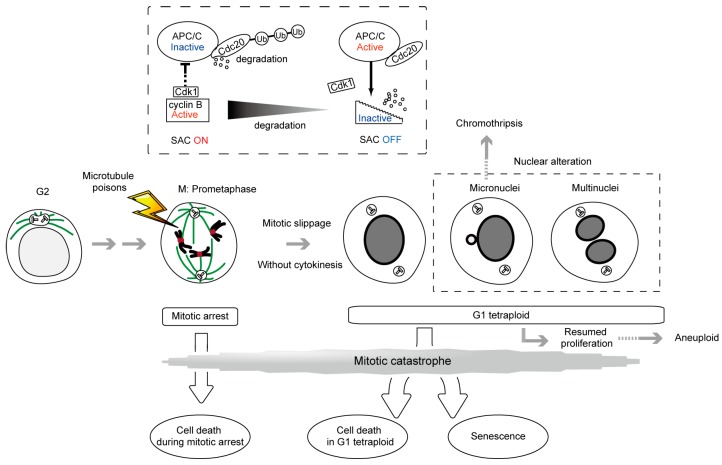Figure 1.
Mitotic catastrophe caused by microtubule poisons. Mitotic catastrophe is a bona fide intrinsic oncosuppressive mechanism that senses mitotic failure and responds by driving a cell towards an irreversible antiproliferative fate of death or senescence [3,4]. Irreversible antiproliferative processes occur during the mitotic phase in diploid cells and the tetraploid state generated after mitotic slippage. The processes governing mitotic arrest and mitotic slippage are described, with the levels of the mitotic cyclin, cyclin B1, being indicated. Nuclear alterations characterizing the mitotic catastrophe are also described. Clustered micronuclei, the third nuclear alteration, are described in Figure 4, but not in Figure 1. In the case of cancer cells whose chromosome number is frequently abnormal, diploid and tetraploid denote the cells with the original number of chromosomes before the treatment of microtubule poisons and with twice the number of chromosomes, respectively.

